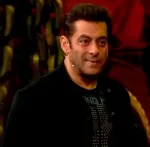She added that being mentally tough is important, as the team that is strong in this aspect usually wins matches in the last four-five overs. India are in Group A for the World Cup alongside Australia, New Zealand, Pakistan and Sri Lanka, and are chasing their first women's T20 World Cup title.
"We have been working on mental strength for a long time. The last 3-4 overs are the most crucial. T20 cricket is not a small format; at the end of the day, you are playing 40 overs. In the last 4-5 overs, the team that is mentally strong wins the match.
"We have been focusing on this for a while. If we can remain mentally stable in those final 5 overs, we can execute what's best for us. We are working on those aspects, and hopefully, we will overcome this hurdle in the tournament," said Harmanpreet to Star Sports, who would be broadcasting the competition in India.
India will begin their campaign against New Zealand in Dubai on October 4 in an evening game and will play Pakistan on October 6 at the same venue in an afternoon match. "All the players in our team come from different states. It feels good when you see so many different characters in the team.
"People from various states share the dressing room, and you get to learn about their cultures. I think you can only experience that in sports, not in any other career. It's a beautiful feeling. All the girls in the team are really nice and humble. It feels great to share the dressing room with them and play cricket together," added Harmanpreet.
The right-handed batter also reflected on her journey and touched upon how the mentality of choosing sports as a career has changed immensely in recent times. "It has been a beautiful journey. I come from a city where there was no cricket, and playing cricket professionally was not easy for me."
"But my family supported me a lot, and today, when I look back, it feels good. A lot of people appreciate it. Obviously, a lot of girls are joining cricket--not just cricket, but other sports as well. At the same time, parents are taking sports seriously. When I started, no one saw sports as a career.
"But now, parents want their kids to play well and choose sports as a career. The way parents think has changed, and it feels good to see that. In the past, only a few parents encouraged their kids in sports, but now, regardless of what they do, parents take pride if their child excels in sports. I think that's a big change," she concluded






